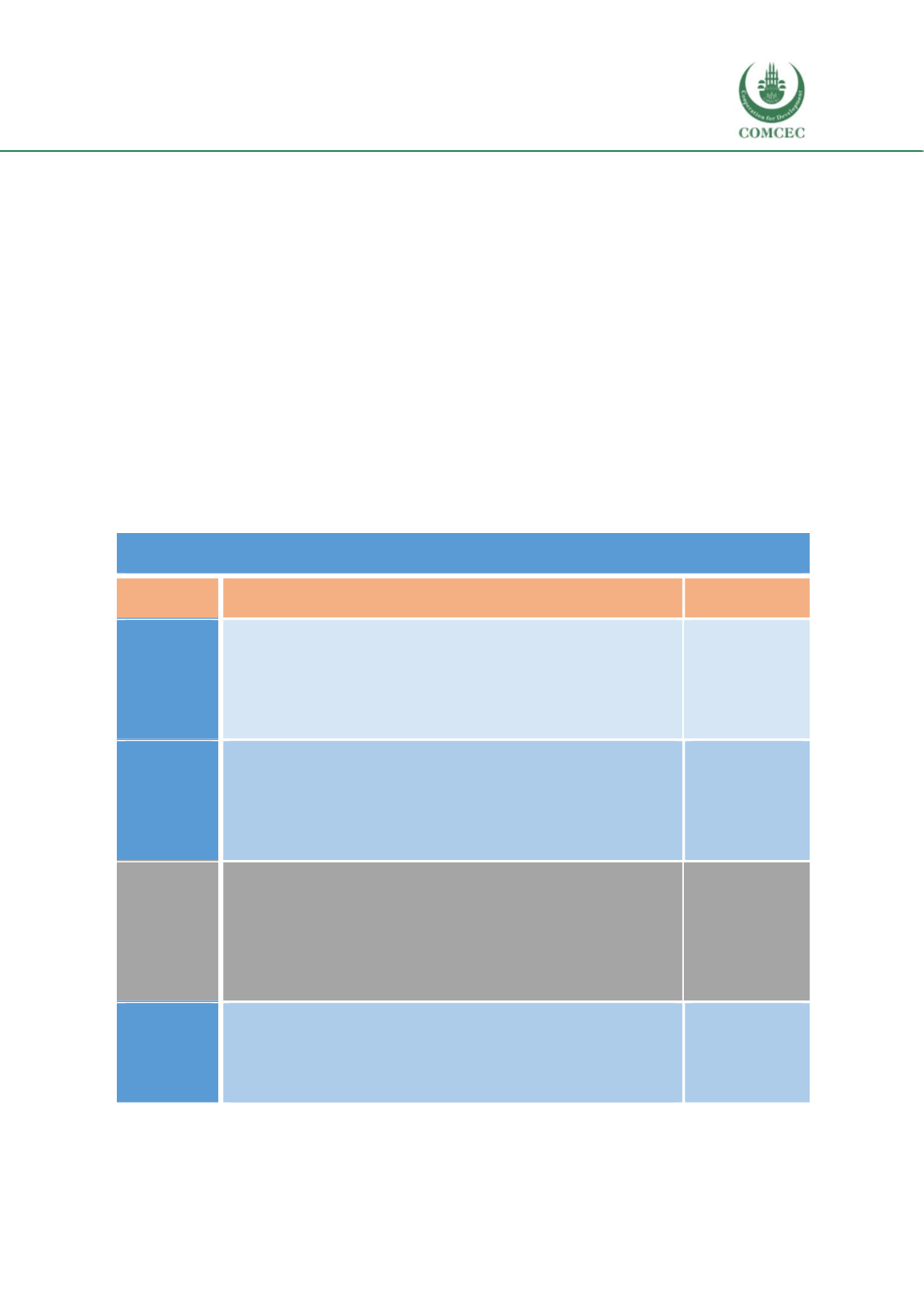

Skills Development: Vocational Education
in the Islamic Countries
111
5.1. Uganda Vocational Qualification Framework (UVQF)
Key Features of the UVQF
UVQF has five levels. It was established toalign TVET training and qualificationswith the focus
of the labor market requirement. The UVQF aims to:
Ensure that employers and industry experts are in the driver’s seat when occupational
standards and training contents are defined;
Safeguard against the institutionalization of the supply-driven, academia-focused
formal training, which failed to provide graduateswith competencies and skills relevant
to the needs of the labor market;
Ensure that all TVET graduates are equipped with employable skills, all formal and
(where possible and appropriate) non-formal training are based on the standards and
completers assessed against these standards; and
Respond to the urgent request of employers to produce more diploma -level TVET
graduates with relevant practical skills (source: TVET, 2014, p. 12).
Table 5.1 Uganda Vocational Qualification Framework (UVQF)
UGANDA VOCATIONAL QUALIFICATIONS FRAMEWORK (UVQF)
SUMMARY OF GENERIC LEVEL DESCRIPTORS
Level
Level Descriptor
Comparable
Qualifications
Level 5
Candidate can apply a broad range of specialized knowledge and
skills to interpret technical information, modify concepts, practices
and procedures, and perform complex technical operations in
unpredictable contexts. Can undertake activities with a high degree
of autonomy when results are checked on by superiors. Shows a
high degree of control of resources and managerial performance.
Higher Diploma
(HD)
Level 4
Candidate can apply a substantial range of specialized
knowledge and skills to interpret technical information and perform
and modify complex operations in a variety of contexts. Can
undertake activities with a substantial degree of autonomy when
results are checked on by superiors. Shows a substantial degree of
control of resources and managerial performance.
Ordinary
Diploma
(OD)
Level 3
Candidate can apply a broad range of knowledge and skills to
perform complex work in varied contexts. Can undertake activities
as a ‘working supervisor’ with a substantial degree of autonomy
when results are checked on by superiors. Can find technical
solutions and make proposals to modify technical operations.
Shows a moderate degree of control of resources and managerial
performance.
Certificate III
Level 2
Candidate can apply a moderate range of knowledge and skills to
perform less complex work in non-routine and occasionally varied
contexts. Can undertake directed activities with some degree of
autonomy while working in a team, and can find simple technical
solutions unaided. Shows a limited degree of control of resources.
Certificate II
















